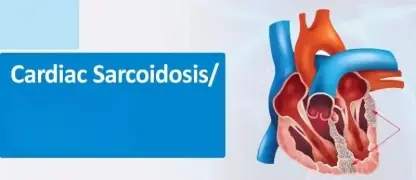Pericardial Effusion is the buildup of fluid around the heart, causing pressure and discomfort. Learn key symptoms, causes, and treatment options.
What are the main causes of pericardial effusion?
- Viral or bacterial infections can inflame the pericardium, leading to fluid buildup around the heart.
- Autoimmune diseases like lupus and rheumatoid arthritis may trigger chronic inflammation and pericardial fluid accumulation.
- Cancer, kidney failure, or injury can cause secondary pericardial effusion in severe medical conditions.
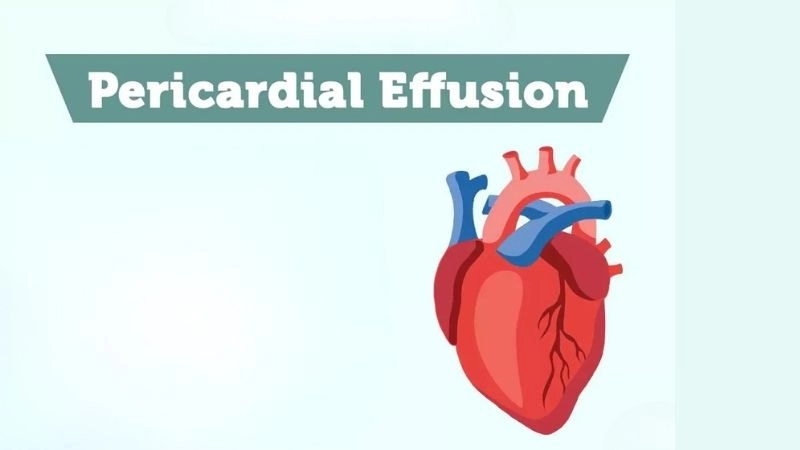
Pericardial effusion symptoms warning signs of fluid buildup
>>> See more: Constrictive pericarditis causes symptoms and care
Key symptoms of pericardial effusion to watch for
- Shortness of breath often worsens when lying flat due to pressure on the lungs from fluid buildup.
- Chest pain or discomfort may mimic a heart attack and become more intense during deep breaths.
- Swelling in legs or abdomen can develop from impaired blood circulation and reduced cardiac efficiency.
How can you prevent pericardial effusion effectively?
- Manage chronic conditions such as autoimmune diseases and kidney disorders with regular checkups and treatment.
- Protect heart health by practicing infection prevention through vaccination and timely treatment.
- Maintain a healthy lifestyle with a balanced diet, exercise, and routine cardiovascular screenings.
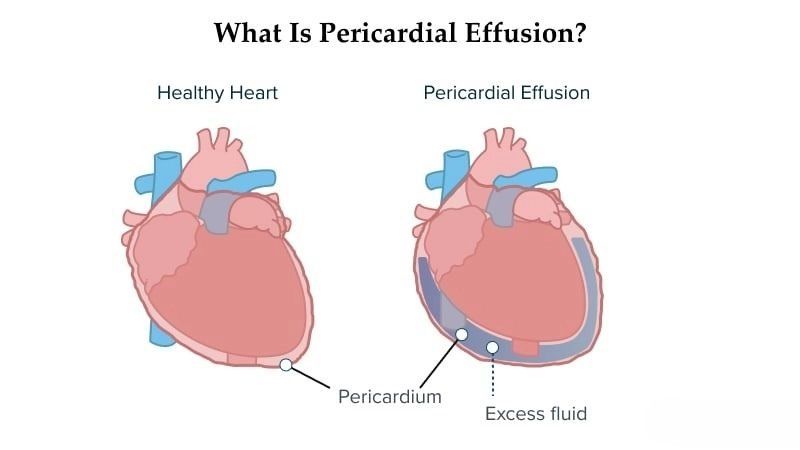
Pericardial effusion causes underlying triggers of condition
>>> See more: How myocarditis impacts the heart and overall health
Images visual examples of pericardial effusion
Pericardial effusion is a condition where excess fluid surrounds the heart, compressing it and affecting its ability to pump blood effectively.
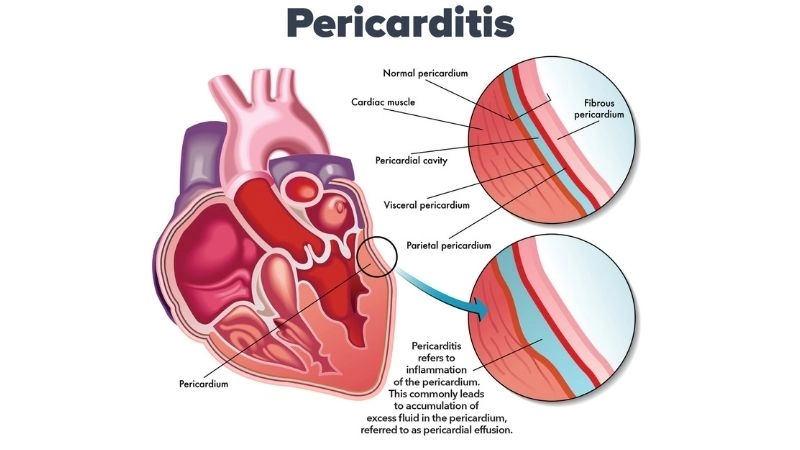
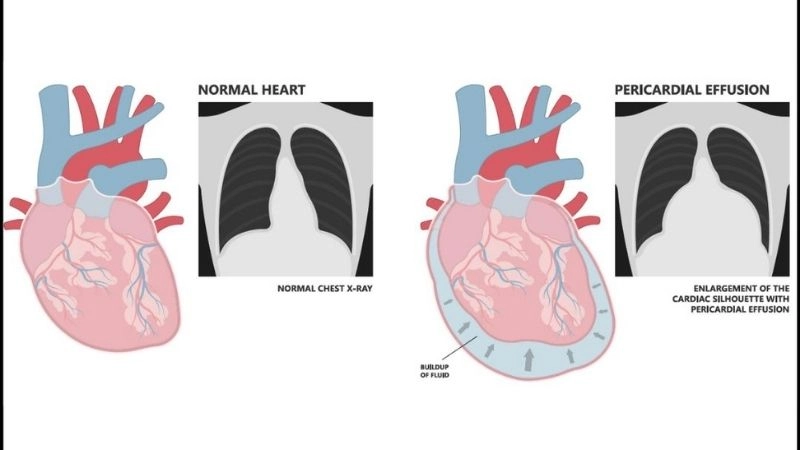
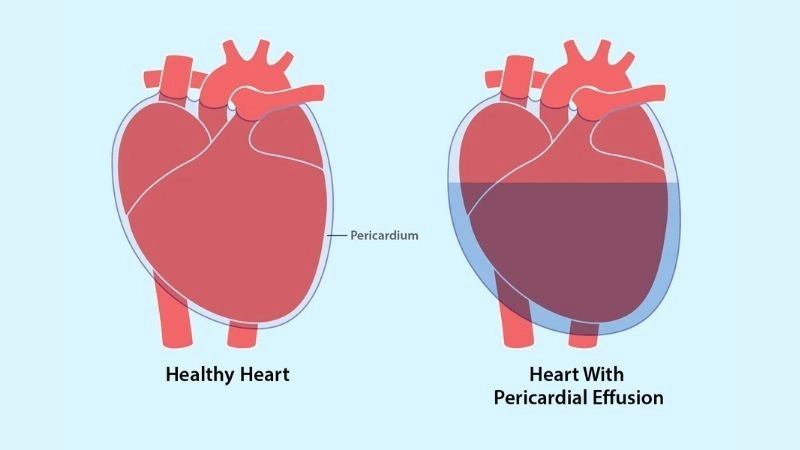
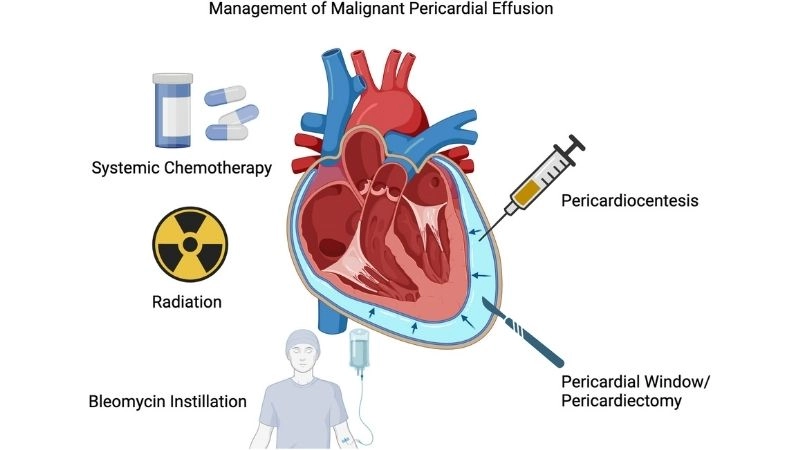
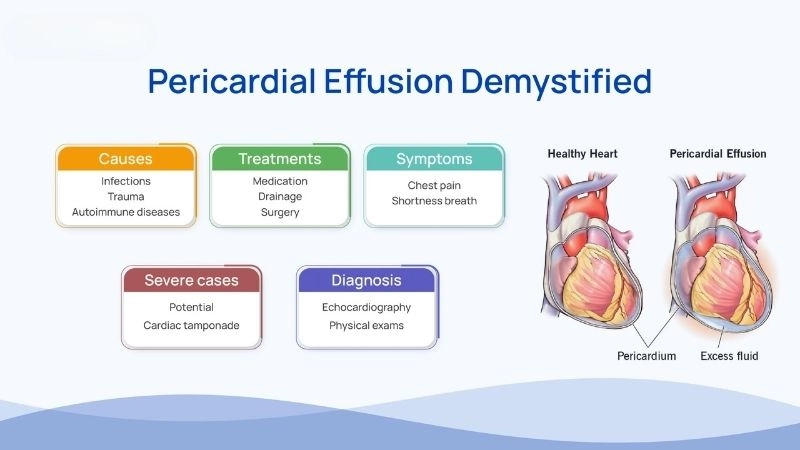
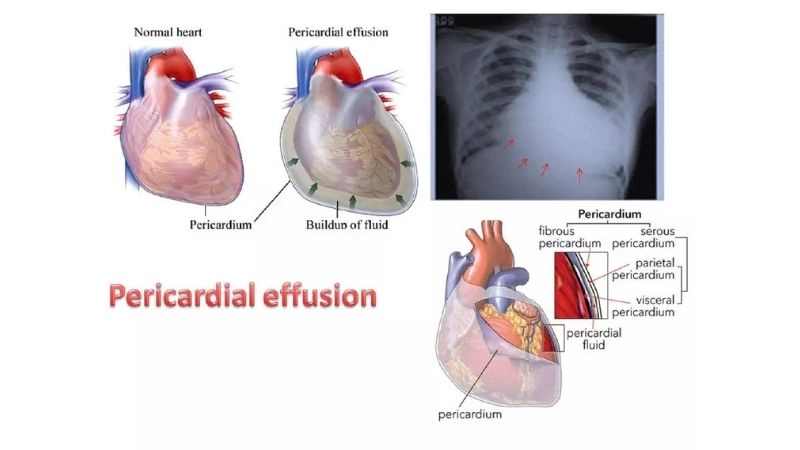
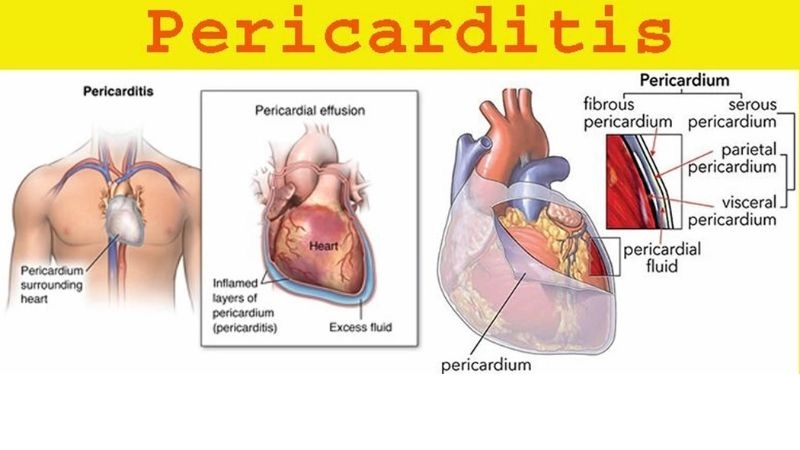
>>> See more: Infective Endocarditis risk factors and early warning
Managing Pericardial Effusion requires early diagnosis, proper treatment, and monitoring. Timely care can prevent serious heart complications and improve recovery.


